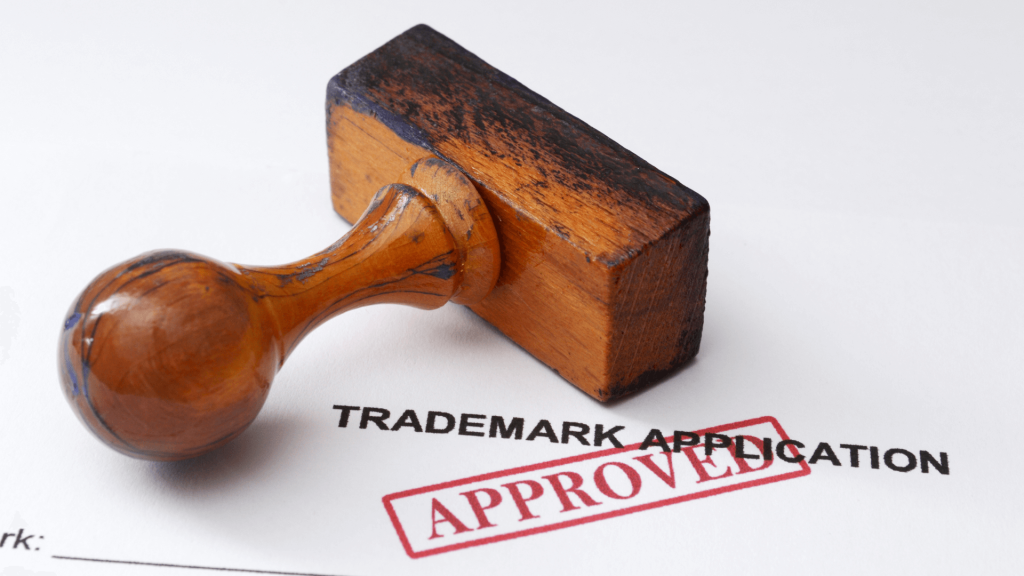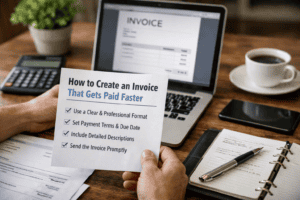Table of Contents
- Understanding Intellectual Property Rights in the UK
- Introduction to Intellectual Property Rights
- Types of Intellectual Property Rights in the UK
- The Importance of Intellectual Property Rights
- Conclusion of Introduction
- Obtaining Intellectual Property Rights in the UK
- Conclusion of Obtaining Intellectual Property Rights
- Enforcement of Intellectual Property Rights in the UK
- Conclusion of Enforcement of Intellectual Property Rights
- Exceptions to Intellectual Property Rights in the UK
- International Considerations in UK Intellectual Property Law
- Recent Legal Updates and Trends
- Conclusion of Intellectual Property Nuances
- Importance of Intellectual Property Rights in Innovation and Economic Growth
- Professional Services in the UK Intellectual Property Ecosystem
- Conclusion of Intellectual Property in the UK’s Innovation and Economy
Understanding Intellectual Property Rights in the UK
Introduction to Intellectual Property Rights
Intellectual property rights (IPR) are legal rights that provide creators protection for their literary, artistic, and industrial inventions. Within the United Kingdom, these rights play a significant role in fostering innovation, economic growth, and the safeguarding of creative ideas. Intellectual property law is multifaceted and encompasses various types of protections, each serving a unique purpose.

Types of Intellectual Property Rights in the UK
In the UK, intellectual property rights are broadly classified into four main categories:
- Patents: Grants protection for inventions, processes, or products that are novel and non-obvious. The UK Intellectual Property Office (IPO) is responsible for administering patent applications.
- Trademarks: Protects symbols, names, and slogans used to recognise goods and services. Registration can be achieved through the IPO, ensuring distinctiveness and authenticity.
- Copyright: Applicable to literary, artistic, and musical works. It protects the expression of ideas and automatically comes into effect without the need for registration.
- Design Rights: Covers the visual appearance of products, including shape, surface, and ornamentation. The IPO also manages design rights registration, allowing creators to safeguard their unique designs.
The Importance of Intellectual Property Rights
Intellectual property rights are integral to the UK’s economy, innovation landscape, and legal system. They serve to:
- Encourage Innovation: By offering protection, inventors are incentivised to invest time and resources into research and development, fostering a culture of creativity and progress.
- Stimulate Economic Growth: IPR contributes to commercial success, creating revenue streams for individuals and businesses, thus fuelling the national economy.
- Protect Creators: Through legal means, creators can prevent unauthorized use or reproduction of their work, ensuring recognition and financial reward.
- Promote Fair Competition: By enforcing a transparent legal framework, IPR facilitates a level playing field, enabling fair competition and ethical business practices.
Conclusion of Introduction
With its rich legacy and robust legal framework, intellectual property rights in the UK are vital for promoting creativity, ensuring legal protection, and contributing to the overall economic well-being of the nation. This multifaceted subject continues to adapt to the challenges and opportunities presented by technological advancements and globalisation.
Obtaining Intellectual Property Rights in the UK
Patent Registration
Patent protection in the UK requires a thorough application process, involving several crucial steps:
- Assessment of Novelty: The invention must be novel and not previously disclosed in any public domain.
- Preparation of Patent Application: This includes drafting detailed descriptions, claims, and technical drawings.
- Submission to the UK Intellectual Property Office: Submission to the IPO is followed by an examination for compliance with statutory requirements.
- Granting of Patent: Upon successful examination and the resolution of any objections, a patent is granted, offering protection for up to 20 years, subject to annual renewal fees.
Trademark Registration
Trademarks are pivotal in brand recognition. The process of registering a trademark in the UK includes:
- Trademark Search: Prior to applying, conducting a search to ensure that the desired mark is unique and not conflicting with existing trademarks.
- Filing an Application with the IPO: Including submission of the mark, list of goods or services it applies to, and the applicable fee. Details can be found on the IPO website.
- Examination and Publication: The IPO examines the application, and if accepted, it is published for potential opposition.
- Registration: If no opposition is filed, or if opposition is overcome, the trademark is registered, providing protection in the UK for ten years, renewable indefinitely.
Copyright Protection
Unlike patents and trademarks, copyright protection arises automatically in the UK without the need for registration. To substantiate ownership, creators may consider:
- Keeping Records: Such as drafts and correspondence relating to the work.
- Depositing Copies: Sending a copy of the work to oneself by registered post and retaining it unopened can provide evidence of creation date.
- Utilising Copyright Notices: Including a copyright symbol ©, the name of the copyright owner, and the year of first publication can act as a deterrent to infringement.
Design Rights Registration
For creators seeking to protect the appearance of their product, the registration of design rights with the IPO is a suitable path. The process involves:
- Preparation of Representations: Including accurate and clear visuals of the design.
- Filing an Application: Providing details of the design and paying the relevant fee.
- Examination and Registration: Following an assessment for compliance with legal requirements, the design is registered, granting protection for up to 25 years, renewable every five years.
Conclusion of Obtaining Intellectual Property Rights
The pathways to securing intellectual property rights in the UK are diverse, reflecting the varying nature of intellectual property itself. From automatic protection, as in copyright, to more complex procedures for patents and trademarks, these processes ensure that inventors and creators are afforded the legal protections necessary to flourish in a competitive marketplace.
Certainly! In this next section, we’ll explore the enforcement of intellectual property rights in the UK, detailing the legal measures, remedies, and governmental support available to rights holders.
Enforcement of Intellectual Property Rights in the UK
Legal Measures for Enforcement
In the UK, enforcement of intellectual property rights is achieved through various legal measures, tailored to the specific type of intellectual property involved.
Civil Proceedings
Most intellectual property disputes can be resolved through civil litigation. This may include:
- Injunctions: A court order preventing the infringing party from continuing the infringement.
- Damages or Account of Profits: Compensation to the rights holder or an order to pay over the profits gained from the infringement.
- Delivery Up or Destruction: The infringing items may be delivered to the rights holder or destroyed.
Criminal Prosecution
In certain cases, such as counterfeiting or piracy, criminal prosecution may be pursued. Penalties may include fines, imprisonment, or both.
Remedies and Resolution Mechanisms
Beyond litigation, there are other means for resolving intellectual property disputes:
- Alternative Dispute Resolution (ADR): This includes mediation and arbitration as less formal and potentially less costly ways to resolve disputes.
- Intellectual Property Enterprise Court (IPEC): A specialist court within the High Court, IPEC provides a more streamlined process for small and medium-sized enterprises.
- Intellectual Property Office (IPO) Opinions: The IPO’s opinion service provides non-binding opinions on patent and design right issues, helping parties make informed decisions.
Governmental Support and Initiatives
The UK government actively supports the protection and enforcement of intellectual property rights through various initiatives:
- Intellectual Property Office (IPO) Support: The IPO offers guidance, tools, and services to assist in the protection and management of intellectual property rights.
- Police Intellectual Property Crime Unit (PIPCU): A specialist national police unit dedicated to protecting intellectual property through enforcement actions against criminal infringement.
- Education and Awareness Campaigns: The government often runs campaigns to educate businesses and the general public about the importance of intellectual property rights and the risks of infringement.
Conclusion of Enforcement of Intellectual Property Rights
Enforcement of intellectual property rights in the UK encompasses a multifaceted approach, combining legal actions, alternative resolution mechanisms, and robust governmental support. These measures collectively strive to uphold the integrity of intellectual property laws, ensuring that rights holders are able to protect their valuable assets and maintain a competitive edge in their respective fields.
Exceptions to Intellectual Property Rights in the UK
Exceptions in Copyright Law
While copyright protection is robust, there are specific allowances to ensure balance:
- Fair Dealing: Includes purposes such as research, private study, criticism, review, and news reporting.
- Teaching and Education: Allows the use of copyrighted material for instructive purposes.
- Library Archiving: Libraries can make copies of works for preservation or to replace lost, destroyed, or stolen items.
Patent Exceptions
Not all inventions are eligible for patents:
- Excluded Subject Matter: This typically includes discoveries, mathematical methods, aesthetic creations, and methods of medical treatment.
- Prior Use: If someone has been using the invention in good faith before the patent application, they might continue using it without infringement.
Trademark Exceptions
There are circumstances where registered trademarks do not give exclusive rights:
- Descriptive Use: Use of a word in its primary, descriptive sense, rather than its trademark sense.
- Comparative Advertising: Legitimately comparing one’s product with that of a trademarked product.
International Considerations in UK Intellectual Property Law
Intellectual property rights are largely territorial. However, international treaties and agreements facilitate cross-border protections:
- European Patent Convention (EPC): Allows for a single patent application to cover multiple countries, including the UK.
- Madrid System: Facilitates international trademark registration, with the UK being a member.
- Berne Convention: Ensures that copyrighted works are protected in all member states, the UK included.
Recent Legal Updates and Trends
Intellectual property law in the UK continues to evolve, reflecting technological advancements and global challenges:
- Post-Brexit Implications: The UK’s departure from the EU has implications for the recognition and enforcement of certain IP rights, necessitating adaptations by businesses and creators.
- Emerging Technologies: With the rise of digital platforms and AI, intellectual property laws are being tested and redefined, requiring both legal and technological understanding.
- Increased Focus on Sustainability: Green patents and trademarks are gaining traction as businesses align with sustainable and eco-friendly practices.
Conclusion of Intellectual Property Nuances
The landscape of intellectual property in the UK is intricate and dynamic, balancing protection for creators with societal benefits and adhering to global standards. By staying updated with exceptions, international protocols, and legal shifts, stakeholders can adeptly navigate this realm and ensure optimal protection and utilisation of their intellectual assets.
Importance of Intellectual Property Rights in Innovation and Economic Growth
Stimulating Innovation
Intellectual property rights incentivise creativity and technological advancement by granting creators the exclusive rights to benefit from their inventions, designs, or works. This fosters:
- Research and Development: With protection in place, businesses and individuals are more likely to invest in new products and technologies.
- Collaboration and Licensing: Intellectual property rights enable creators to license, sell, or otherwise commercialise their inventions, encouraging collaboration between different industries and disciplines.
Driving Economic Growth
Intellectual property plays a vital role in economic development and competitiveness:
- Job Creation: Industries that heavily rely on intellectual property often contribute significantly to employment.
- Export and Trade: Intellectual property-intensive industries frequently represent a substantial portion of exports and trade, bolstering the UK’s global economic position.
- Attracting Investment: Strong intellectual property laws and enforcement attract foreign investment and encourage local entrepreneurship.
Professional Services in the UK Intellectual Property Ecosystem
Patent Attorneys
Specialising in technical and legal aspects of intellectual property, patent attorneys in the UK advise on obtaining patents, assess potential infringement, and represent clients in disputes. The Chartered Institute of Patent Attorneys offers guidance and support to professionals in this field.
Trademark Attorneys
Trademark attorneys assist businesses in selecting, registering, and protecting trademarks, ensuring alignment with legal requirements. The Chartered Institute of Trade Mark Attorneys is a valuable resource for professionals and businesses alike.
Intellectual Property Solicitors
These legal specialists handle broader aspects of intellectual property law, including licensing, commercial agreements, litigation, and strategic management of intellectual property portfolios.
Intellectual Property Valuation Experts
With intellectual property often being a significant asset for businesses, valuation experts assess the financial worth of patents, trademarks, copyrights, and other intellectual property rights, aiding in transactions, licensing, and strategic planning.
Conclusion of Intellectual Property in the UK’s Innovation and Economy
Intellectual property rights in the UK form a multifaceted and dynamic legal framework that serves as the cornerstone of creativity, innovation, and economic prosperity. From defining the various forms of intellectual property and outlining robust enforcement mechanisms to exploring the exceptions and international considerations, the UK’s intellectual property system demonstrates a thoughtful balance between protecting individual rights and serving societal needs. The importance of intellectual property transcends legal boundaries, manifesting in economic growth, technological advancement, and the sustenance of professional services dedicated to intellectual property management and protection. As the landscape continues to evolve in response to global challenges, technological trends, and sustainability imperatives, understanding and navigating intellectual property rights remain vital for businesses, creators, and legal professionals. The comprehensive ecosystem of intellectual property in the UK is not just a set of legal tools but an essential driver for growth, collaboration, and progress, reflecting the nation’s commitment to fostering ingenuity and embracing the future with clarity and confidence.










